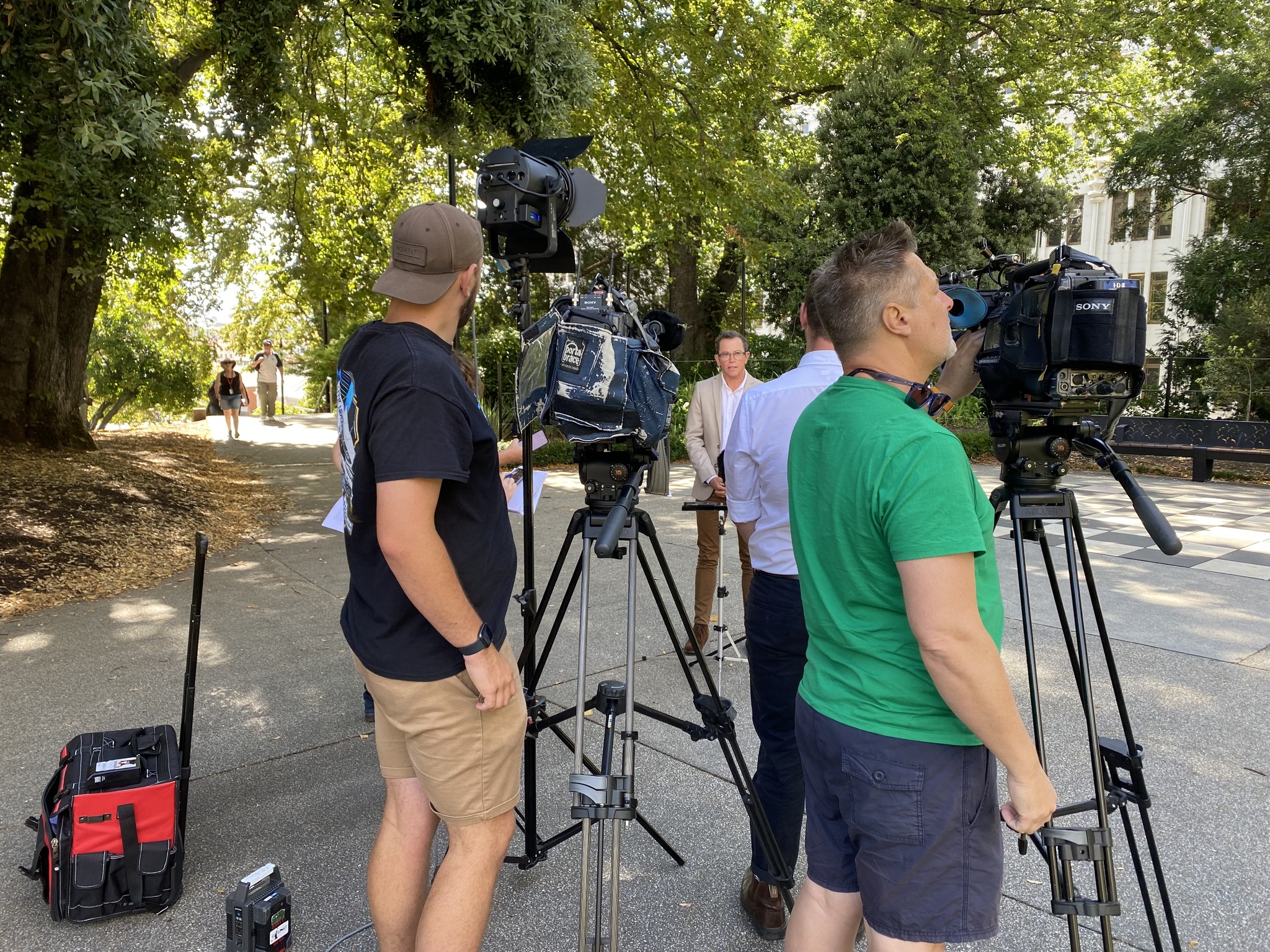Tasmania’s community services industry has today launched a new campaign for a fair and reasonable funding increase from the Tasmanian Government.
TasCOSS Acting CEO, Dr Charlie Burton, said the Fair Funding campaign calls on the Tasmanian Government to provide a fair and reasonable funding increase of 9.5% in this year’s budget, to allow the community services industry to continue to provide the essential services and support Tasmanians need.
“The community services industry is critical to Tasmania’s society, delivering essential services either instead of, or on behalf of, the Tasmanian Government, as well as contributing $1.9 billion each year to the Tasmanian economy,” said Dr Burton.
“For the past 20 years, annual indexation for the industry has been between zero and 3% (in 2021/22). During this period, inflation has averaged 3.54% each year.
“In practice, the gap between income and growth in our costs is even larger. For example, in the years 2020 and 2021, annual government indexation was 2.25%, while the majority of community service organisations experienced cost increases of 9.2% and 13.1% for each of those years.”
Alcohol, Tobacco and other Drugs Council (ATDC) Tasmania Acting CEO, Dr Jackie Hallam, said that operational and service delivery costs had increased dramatically for community service organisations due to skyrocketing inflation and higher wages.
“It’s death by a thousand cuts, we are seeing our organisations having to make tough decisions and cut staff and services in a time when there are waiting lists to access treatment and education,” said Dr Hallam.
“It’s now even more out of balance and will have flow on effects and fill up our hospitals and prisons.”
Dr Burton said just because many of the providers that operate in the community service industry are either charities or not-for-profit organisations, doesn’t mean they can operate in a way which defies the basic laws of commerce, or for that matter not fulfil their employer obligations.
“They still need to pay staff, rent, fuel, insurance, electricity and all other manner of outgoings, just like any other business. And if at the end of the day their outgoings are more than their incomings, then they will need to either increase their revenue, or reduce costs by cutting services or shedding staff or both, just to continue operating,” he said.
“Tasmania’s essential community service organisations are at the frontline of supporting Tasmanians in need and at a time when demand on community services is increasing due to high inflation and high interest rates, if we don’t receive a fair and reasonable funding increase we will effectively be going backwards.
“This could leave us in the invidious position of turning people away without the help they need or having no choice but to let staff go, which would be a simply terrible situation.
“The community services industry is a significant part of the Tasmanian economy as part of the Health Care and Social Assistance Sector, which employs around 15% of Tasmania’s total workforce and contributes more than 13% of Tasmania’s Gross State Product (GSP).
“Just some of the essential work we do includes helping Tasmanians to avoid ill health through support to stay active and eat well, providing financial counselling to address housing stress, as well as delivering literacy and digital skills to ensure young Tasmanians have the skills and confidence they need to gain employment.
“With inflation driving costs skyward, if we do not receive fair and reasonable funding from the Tasmanian Government there will be more people presenting to Emergency Departments, more people living on the streets and jobs will be lost,” Dr Burton concluded.
SIX KEY FACTS
- The community services industry is a significant part of our economy as part of the Health Care and Social Assistance Sector, which (last Financial Year 2021/22) employed around 15% of Tasmania’s total workforce and contributed 13.1% of GSP.
- With the current (December Quarter, 2022) annual inflation rate of 7.7% and a yearly average of 3.54% (December 2002 to December 2022), the indexation rate which has varied between zero and 3% over the last 20 years in Tasmania, is simply not enough.
- Last year our interstate equivalents received indexing of 4.6% in Victoria, 5.5% in New South Wales and 5.07% in Queensland — while for the Tasmanian community services industry it was just 3%.
- Tasmanian Government workers have received a nearly 10% wage increase over three years, while nationally the minimum wage and rise in the super guarantee increased wages for the industry by 5.1% last year.
- TasCOSS, in partnership with the community services industry Network of Peaks, has undertaken comprehensive research and calculated that an increase of 9.5% in Government funding is necessary just to maintain current jobs and service levels in the industry.
- We are seeking 9.5% indexation across Tasmanian Government funded community services for the 2023/24 Budget and a commitment to the introduction of a fit-for-purpose model for indexation from 2024/25.

